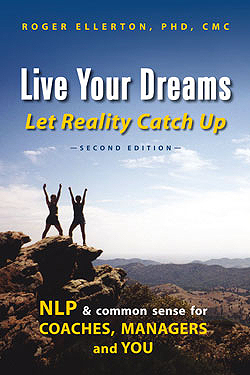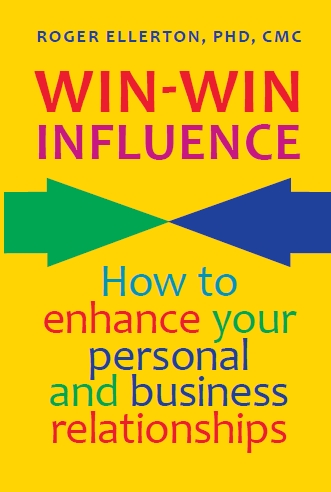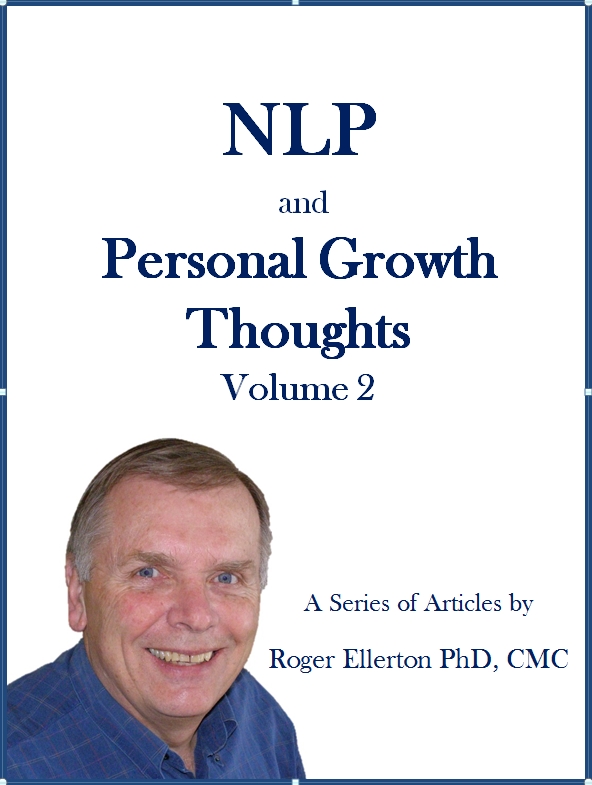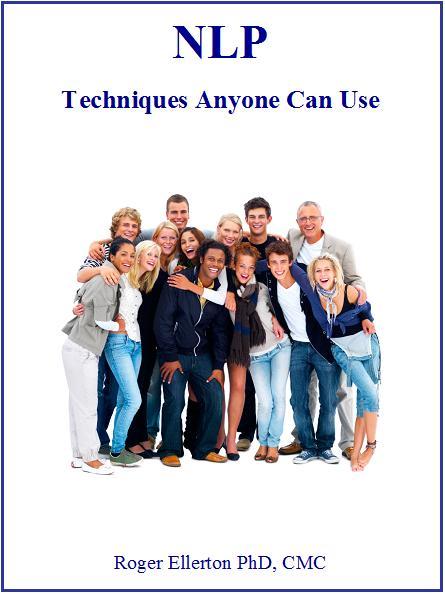NLP Communication Model, Part I
By Roger Ellerton Phd, ISP, CMC, Renewal Technologies Inc.
This article may not be republished without written permission from Roger Ellerton/Renewal Technologies Inc. If you republish this article without permission, you will be in violation of copyright law and sent an invoice. You may share this and other pages with your friends by linking directly to this page from your website or blog.
In simple terms, the NLP Communication Model is about how you make sense of your world and the behaviours that you manifest as a result. In this article, we will focus how you make sense of your world (i.e. How you filter information).
Conscious Awareness
It is estimated that your brain receives about four billion nerve impulses every second. Are you consciously aware of all of this information? No! For example, are you aware of how your shirt feels on your back? Unless your shirt is particularly tight or uncomfortable or you have a sunburn, I suspect that you were not aware of how your shirt felt until I mentioned it. Why? Because it was not important at the time and it was filtered out. Of the 4 billion bits of information, you are only consciously aware of about 2,000 bits, or about 0.00005 percent of all the potential information. To take in and process more of this information would either drive you crazy or be such a distraction that you could not function.
Filters - Deletions, Distortions and Generalizations
What happens to all of this other information? It is filtered from your conscious awareness by deleting (i.e how your shirt feels on your back), distorting (i.e. simplifying) or generalizing. What you actually delete, distort and generalize depends on your Beliefs, Language, Decisions, Values, Memories, Meta Programs (more about this topic in a later article), etc. Let us look at a few examples to gain an appreciation of how they work.
Beliefs
Suppose you have a belief that 'You can't do anything right'. How would you react when someone approaches you and says "You did a great job preparing that report."? Depending on the circumstances, you may dismiss, discount or deflect their positive feedback. Internally you may think they have not looked at it in detail and when they do they will find something wrong and change their opinion. Suppose all day, people tell you that you have done a great job -- do you really hear them? Not likely! And then one person points out that you made a couple of spelling mistakes on page 21. Does this resonate for you? You bet it does! It verifies your belief about yourself. From a 'filter' perspective, you have deleted and distorted the positive feedback and focused on the negative. What beliefs do you have about yourself, about others, about the world, that limit who you can be or what you can accomplish?
Language (Words)
You may choose to over simplify (distort) how you and your spouse interact by referring to 'our relationship'. Words are interesting. They are a form of code to represent your interpretation of something. If you want to have some fun, get a group of people together and have each independently write down five words that for them means 'relationship'. I will bet that nobody comes up with the same five words as you do; and as a group you may not have any words in common. The word 'relationship' is code for what relationship means for you and I suspect that your spouse has a completely different meaning for this word. Yet, we enter into long and sometimes heated discussions with our loved ones about 'our relationship', without ever really discussing what 'relationship' means to each other. If this is a topic of concern for you, next time you may wish to ask "How are we relating that is not working for you (or supporting you)?" (and also what is working for you?). This will surface something that both of you can actually work on. We will discuss this in more detail in a later article.
Decisions
You make decisions (i.e. generalize) so that you do not have to relearn things every day. If you want to open a door, you learned a long time ago (made the generalization) that you grasp the doorknob, twist and pull or push and it opens - you do not have to go through the whole process of relearning how to open a door each and every time. Generalizations are useful and they can also get us into trouble. In an experiment, researchers put the doorknob on the same side of the door as the hinge. What do you think happened when they left adults in the room? They would go up to the door, grasp the doorknob, twist and then try to push or pull the door open. Of course, it would not open. As a result, the adults decided that the door was locked and they were locked in the room! Young children, on the other hand, who had not yet made the generalization about the doorknob, simply walked up to the door and pushed on it and exited the room. The adults, because of their decisions, created a reality of being locked in the room when in fact they were not. So how many of your decision (generalizations) about your spouse, your boss, the way it is at work, ... leave you 'locked in', when others are not stopped by it?
For me, one of the benefits of NLP is to discover those filters I have put in place and how they affect what I see, hear, feel; how I react to others and what I create in my life. Once I become aware of filters that do not serve me, I can choose consciously or with the help of NLP techniques to modify or remove them.
And NLP is Much more than that!
In the next article (NLP Communication Model, Part II), we will illustrate the effect your filters have on your behaviours and the reality that you create.
Author: Roger Ellerton is a certified NLP trainer, certified management consultant and the founder and managing partner of Renewal Technologies. The above article is based on his book Live Your Dreams Let Reality Catch Up: NLP and Common Sense for Coaches, Managers and You.
Copyright © 2003, Renewal Technologies Inc. All rights reserved.








